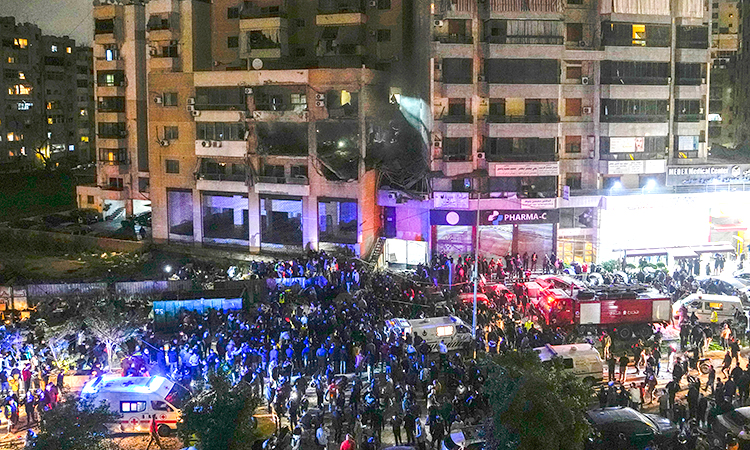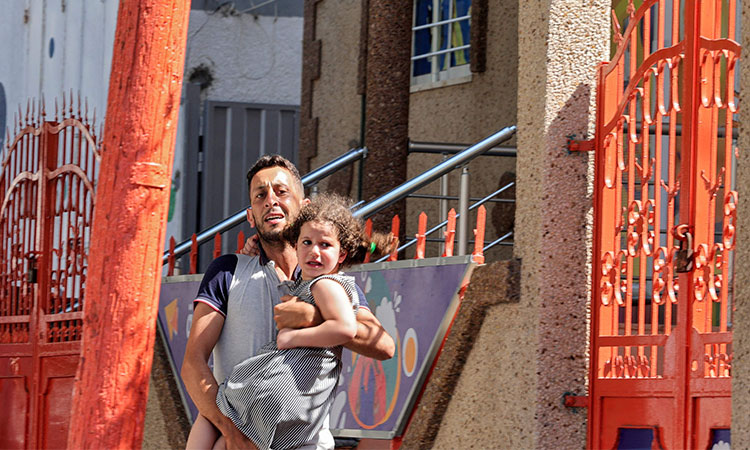Gaza war tensions spike after deadly Iran blasts, Lebanon killing

A man is being comforted by another man as he sits next to his loved one in a body bag. AP
Fears that Israel's war in Gaza could spiral across the Middle East mounted on Wednesday after twin explosions ripped through an Iranian crowd, claiming at least 103 lives following a strike in Lebanon that killed Hamas's deputy leader.
More than 200 other people were wounded when the blasts about 15 minutes apart struck mourners commemorating slain Revolutionary Guards general Qasem Soleimani on the fourth anniversary of his killing in a United States drone strike, Iran's state media reported.
No group claimed responsibility for the blasts which, according to AFP archives, were the country's deadliest attack since a 1978 arson that killed at least 377 people.
State-run TV labelled the blasts a "terrorist attack". They came with regional tensions already soaring a day after the Beirut strike which killed Hamas number two Saleh Al Aruri.
A US official on Wednesday told the media "an Israeli strike" took the life of Aruri, the most high-profile figure killed during the nearly three months that Israel has been at war with Hamas in the Gaza Strip.
Following Tuesday's unclaimed Beirut attack, Israeli army spokesman Daniel Hagari said the military was "highly prepared for any scenario". He did not comment directly on the killing of Aruri, who Hamas said will be buried on Thursday in Beirut's Shatila Palestinian refugee camp.
People search for survivors following a massive explosion in the southern suburb of Beirut on Tuesday. AP
Israel and Iran have long been bitter enemies. Violence involving Iran-backed groups in Lebanon, Iraq, Syria and Yemen has spiked during the Gaza war sparked by the unprecedented October 7 attack by Palestinian group Hamas on southern Israel.
There have been repeated, deadly exchanges of fire across the Lebanon-Israel border, attacks on shipping in the Red Sea area vital for global trade, and strikes against US-led coalition forces in Iraq and Syria.
More intense wider warfare has so far been avoided, but the Iran blasts rattled global markets, sending oil prices up by more than three percent.
Following the Aruri killing, Germany warned its citizens to leave Lebanon quickly and said, "further deterioration of the situation and expansion of the conflict cannot be ruled out".
Agence France-Presse








